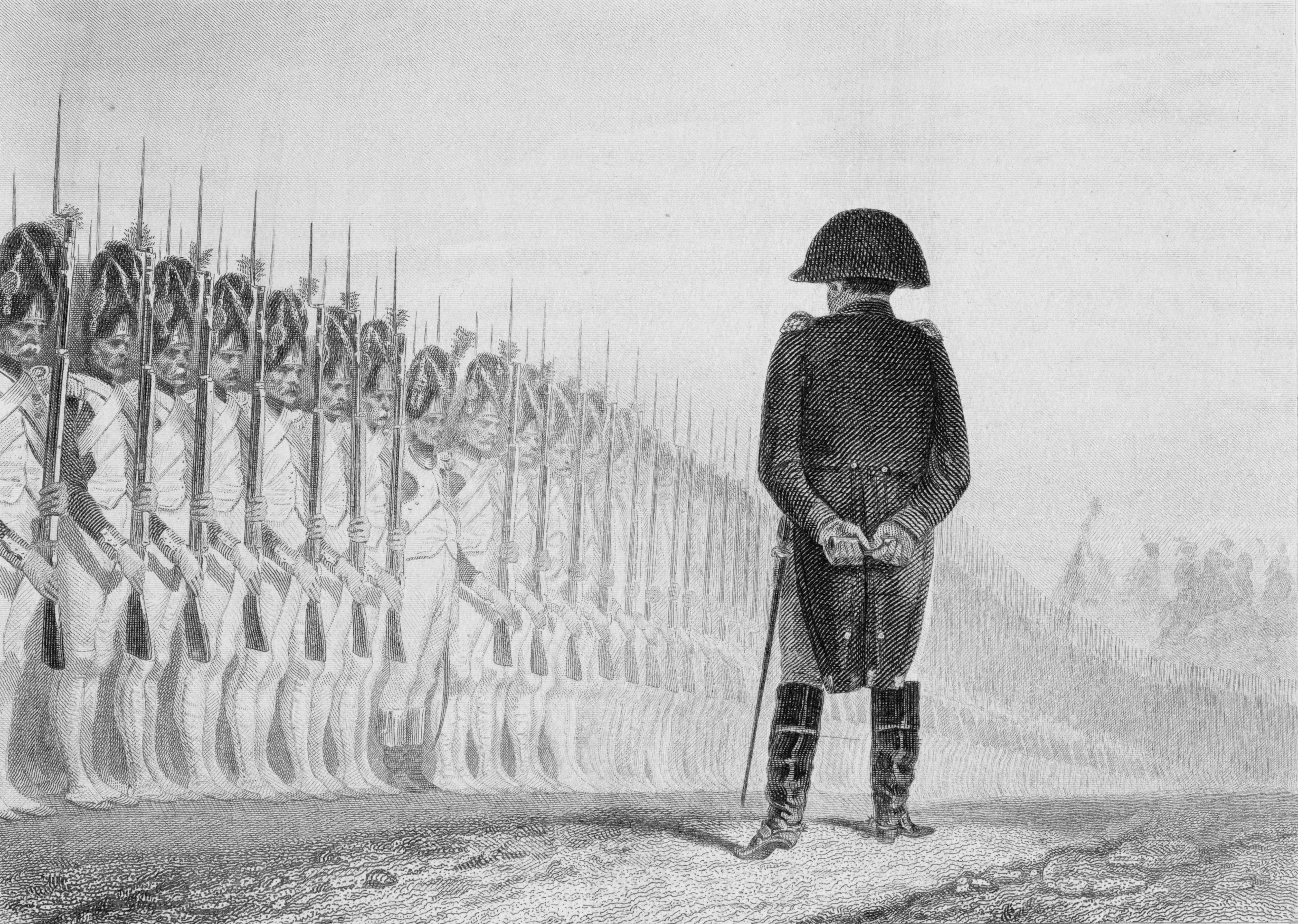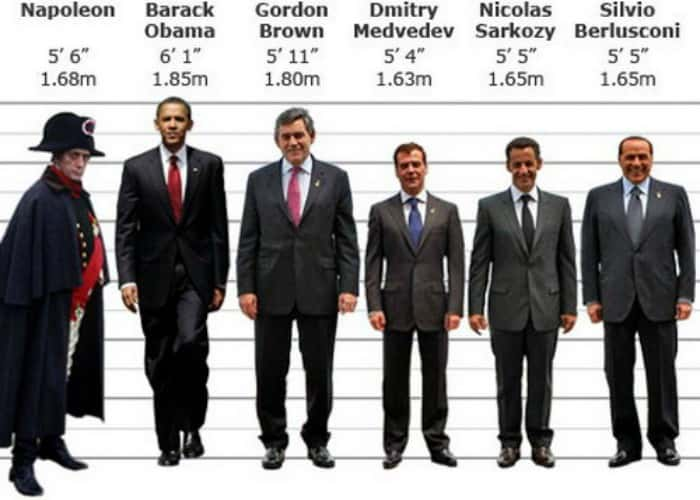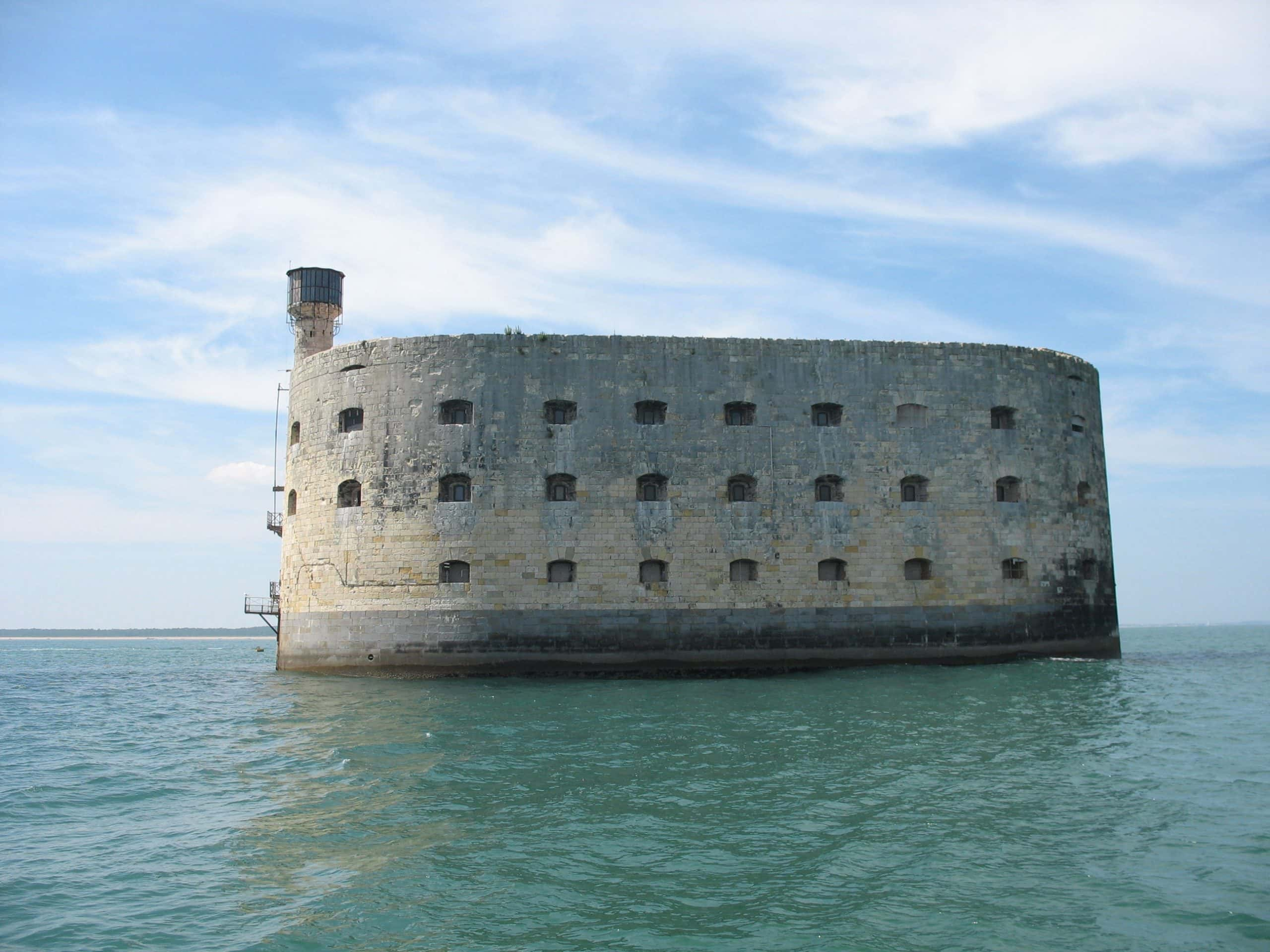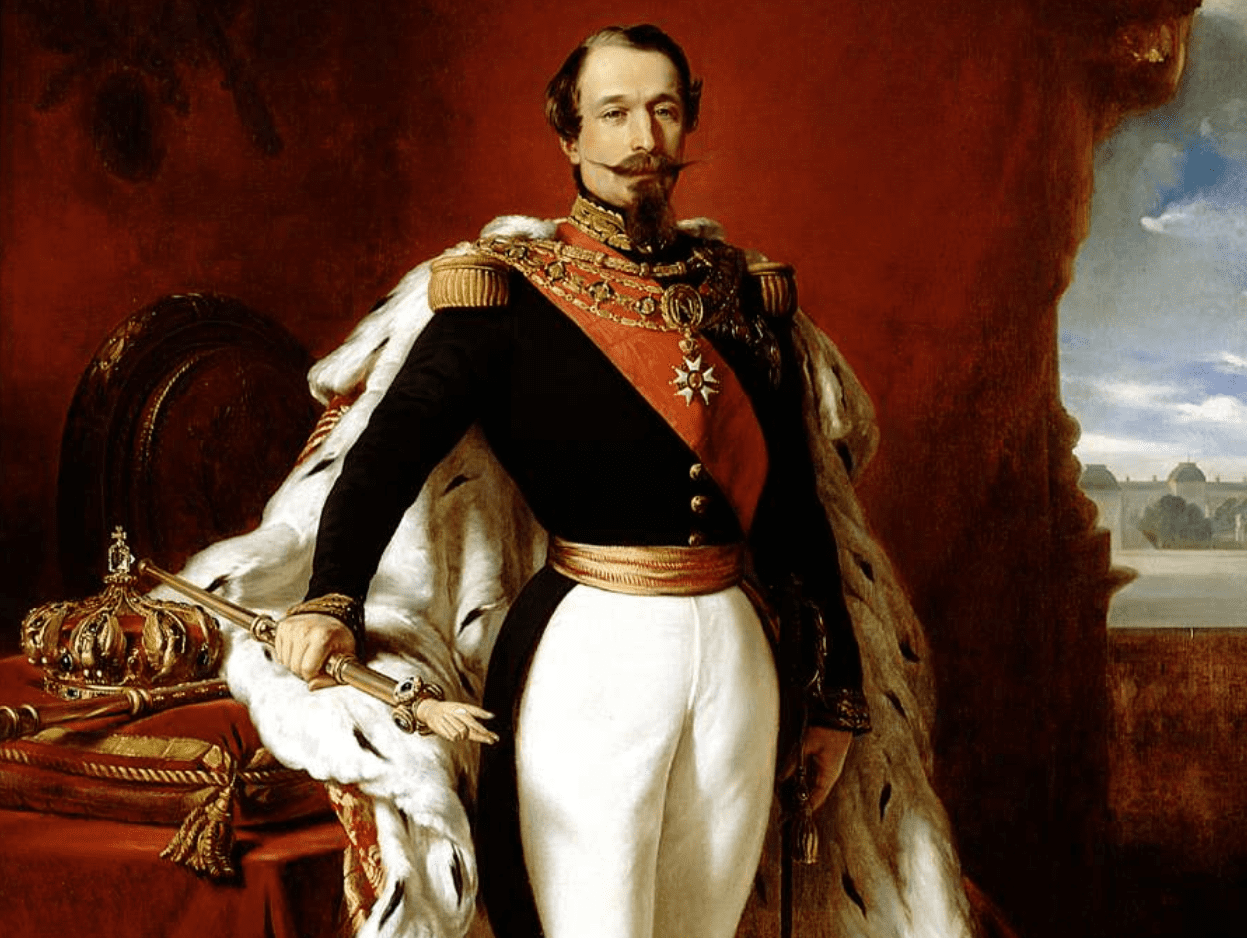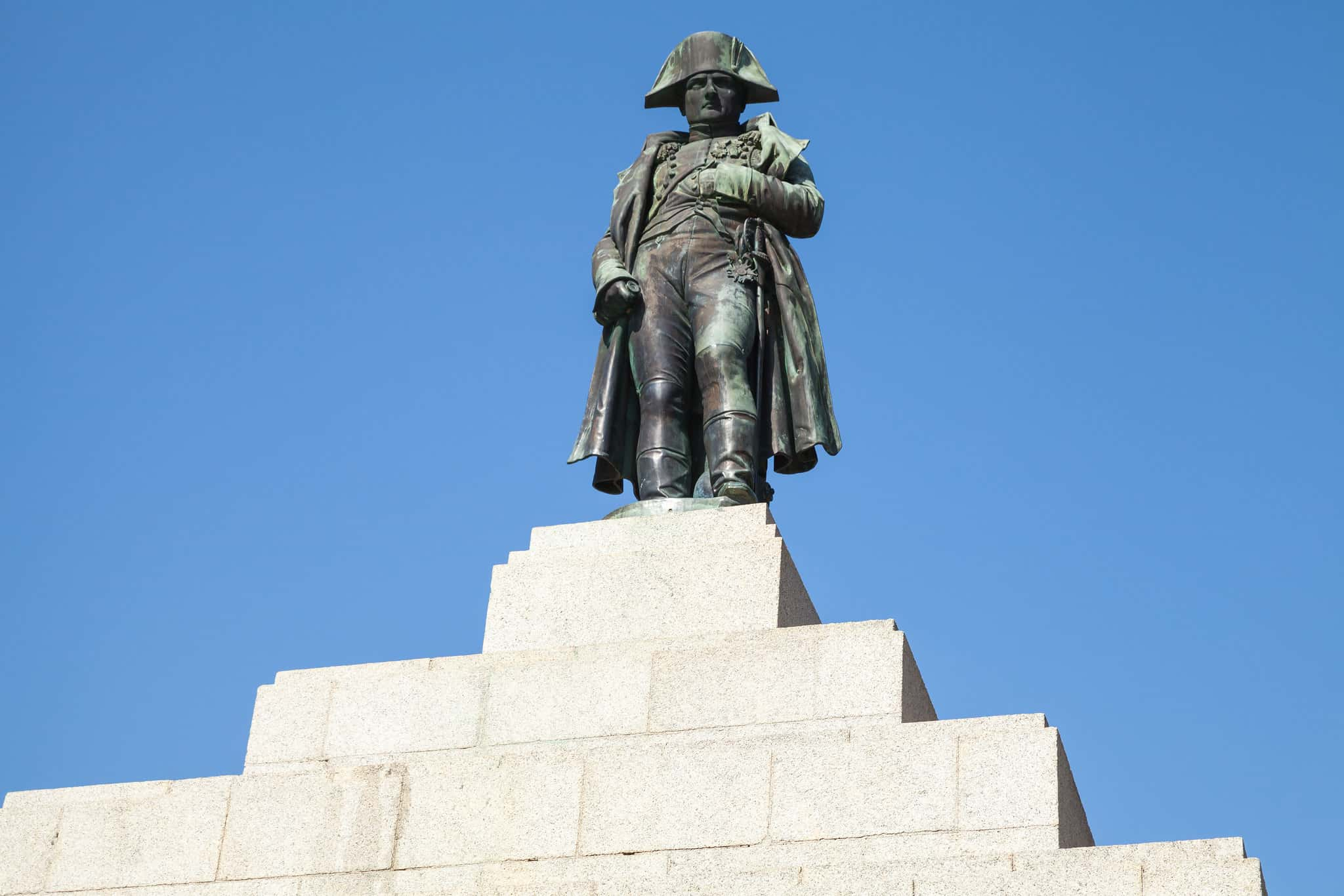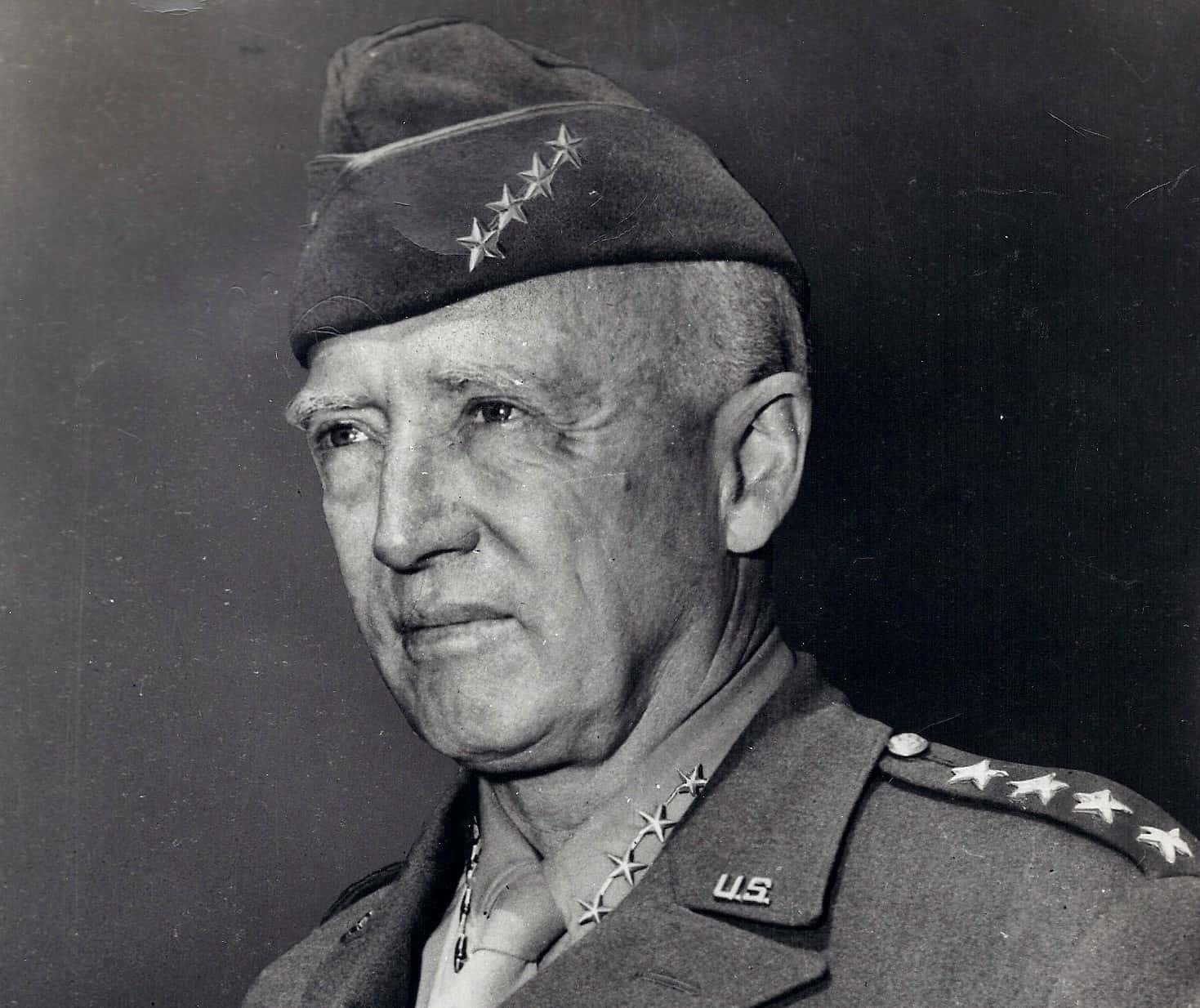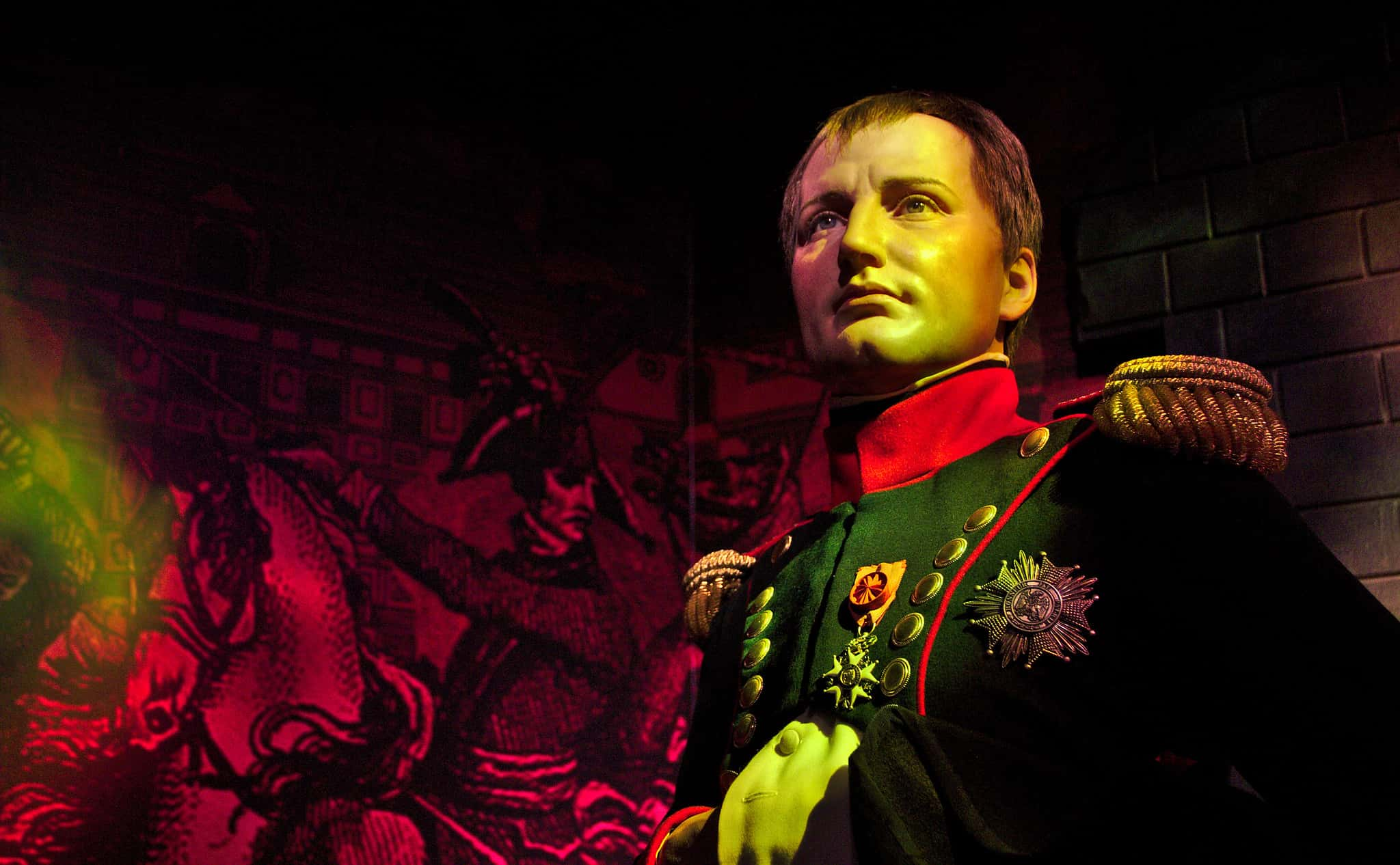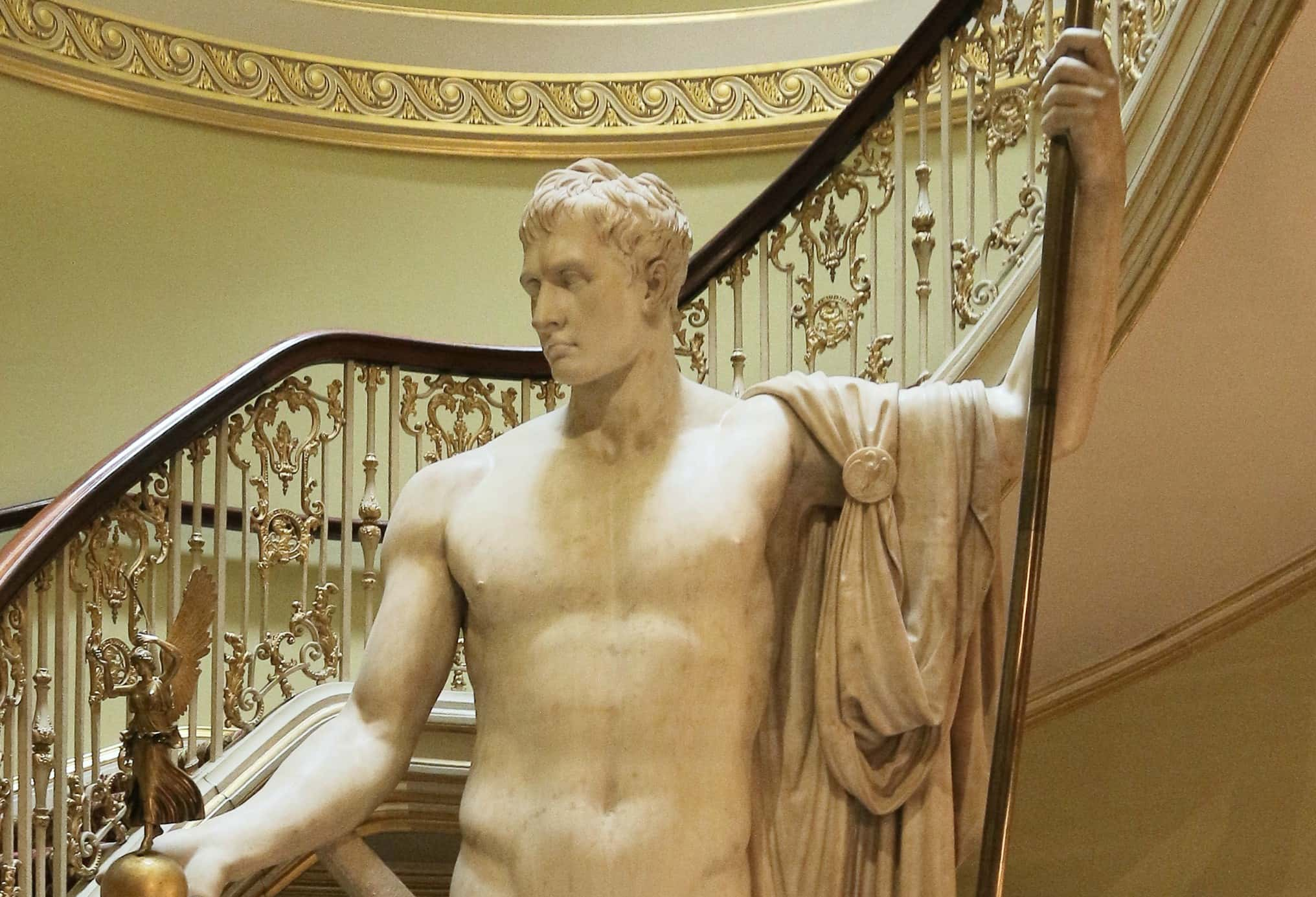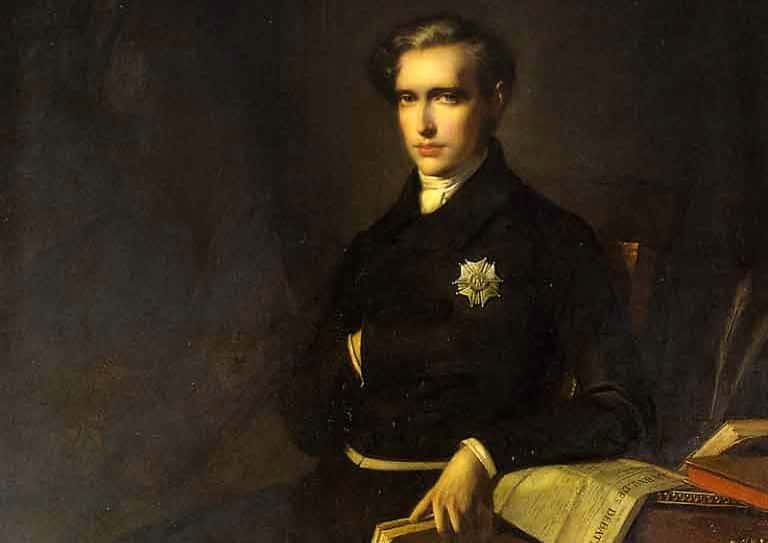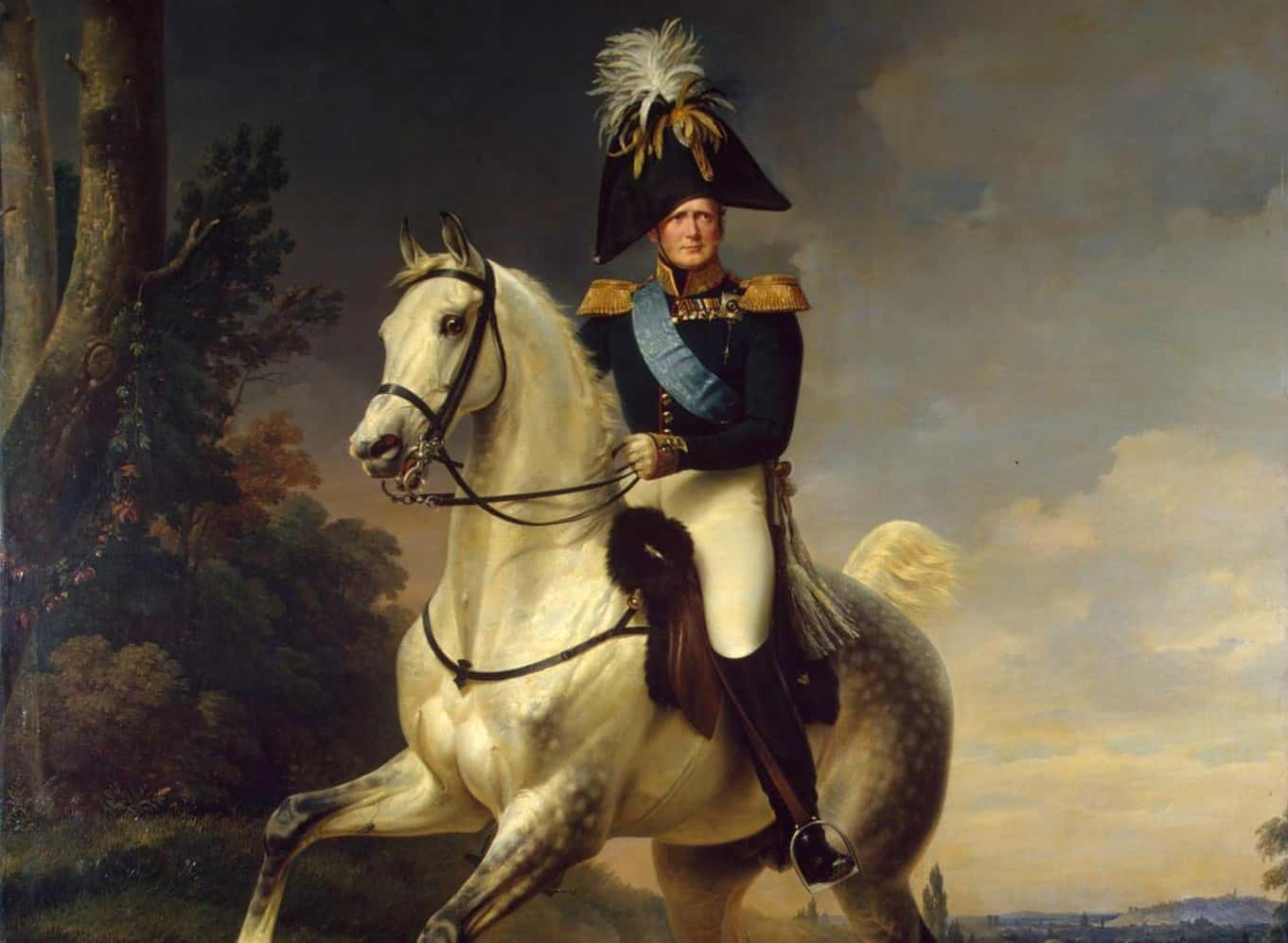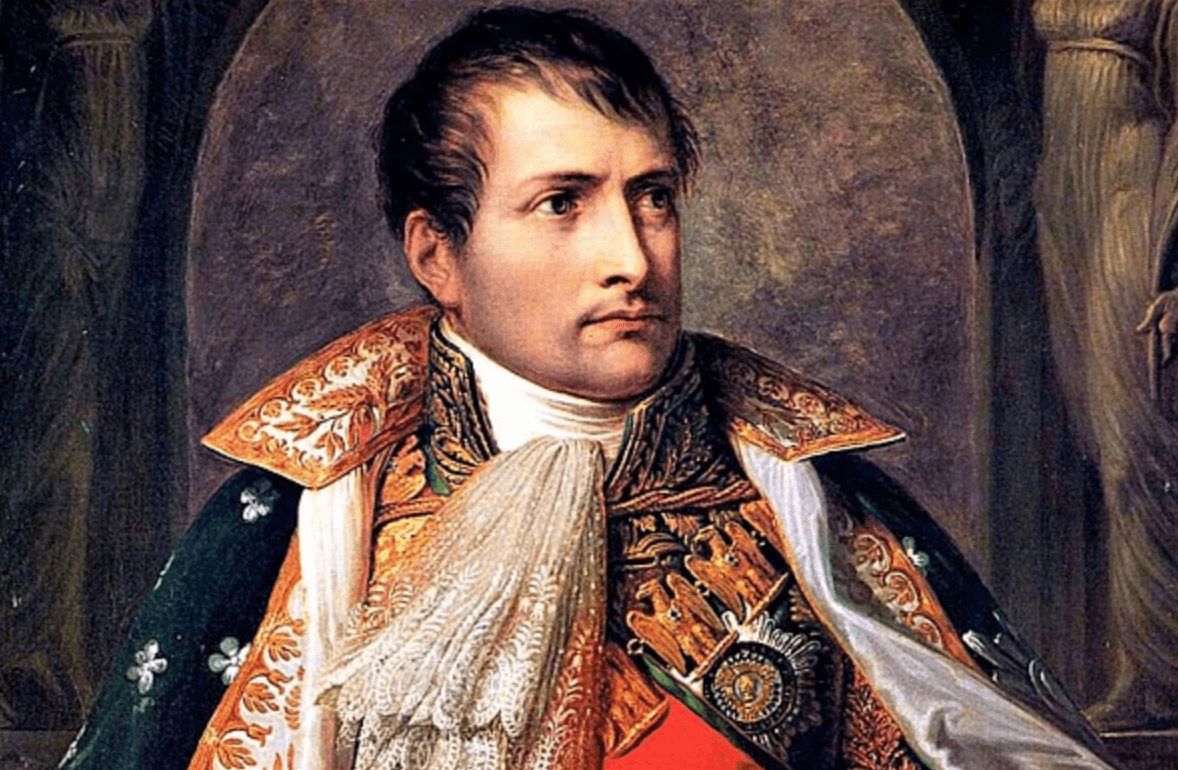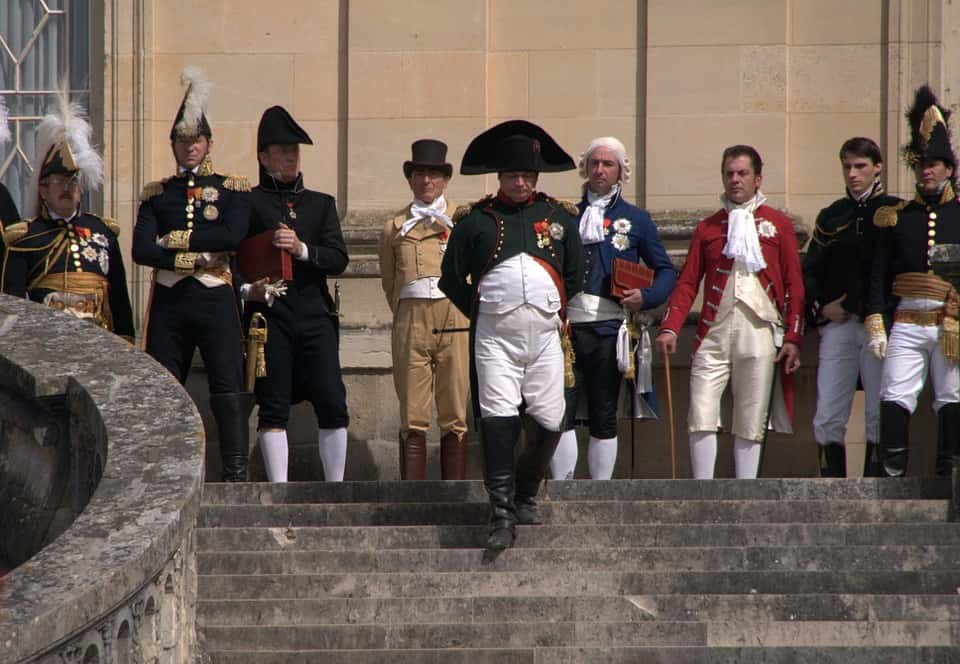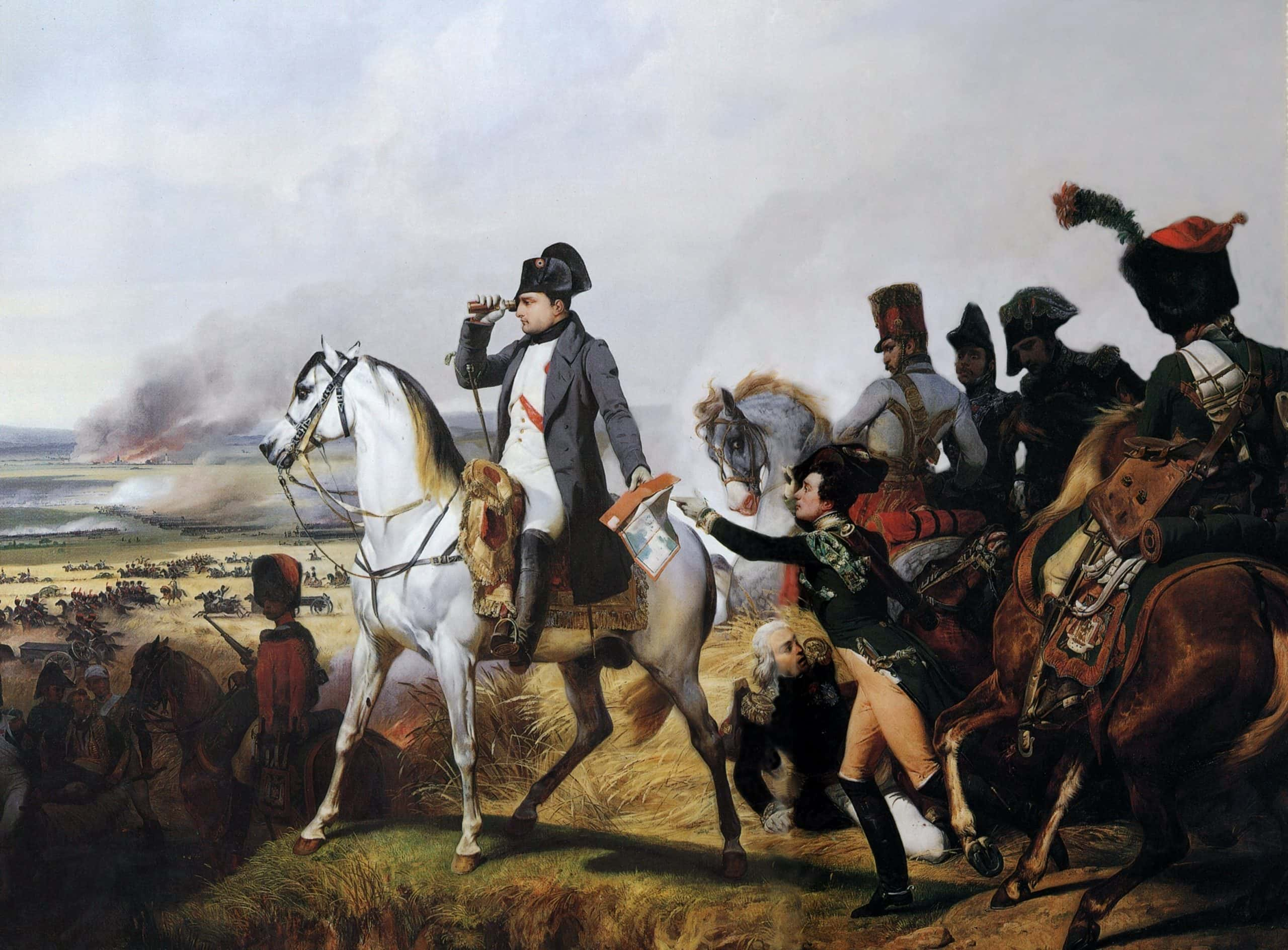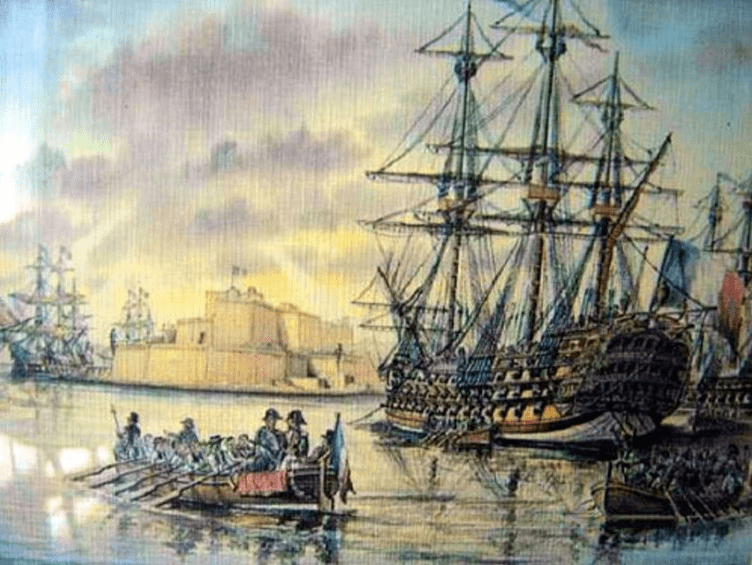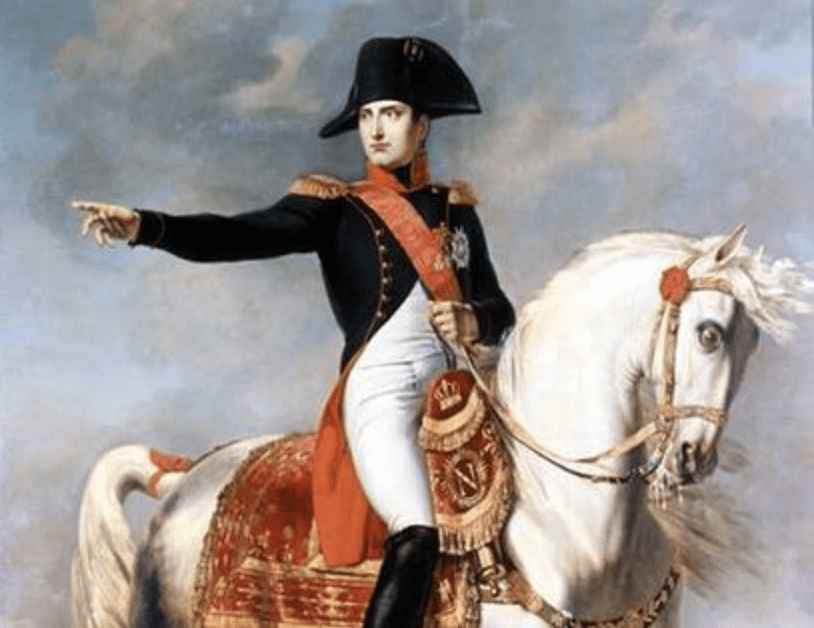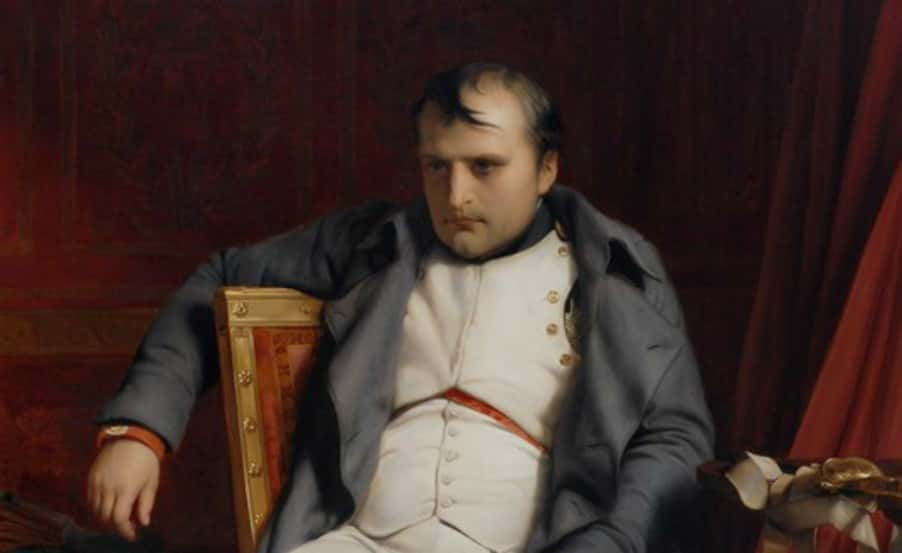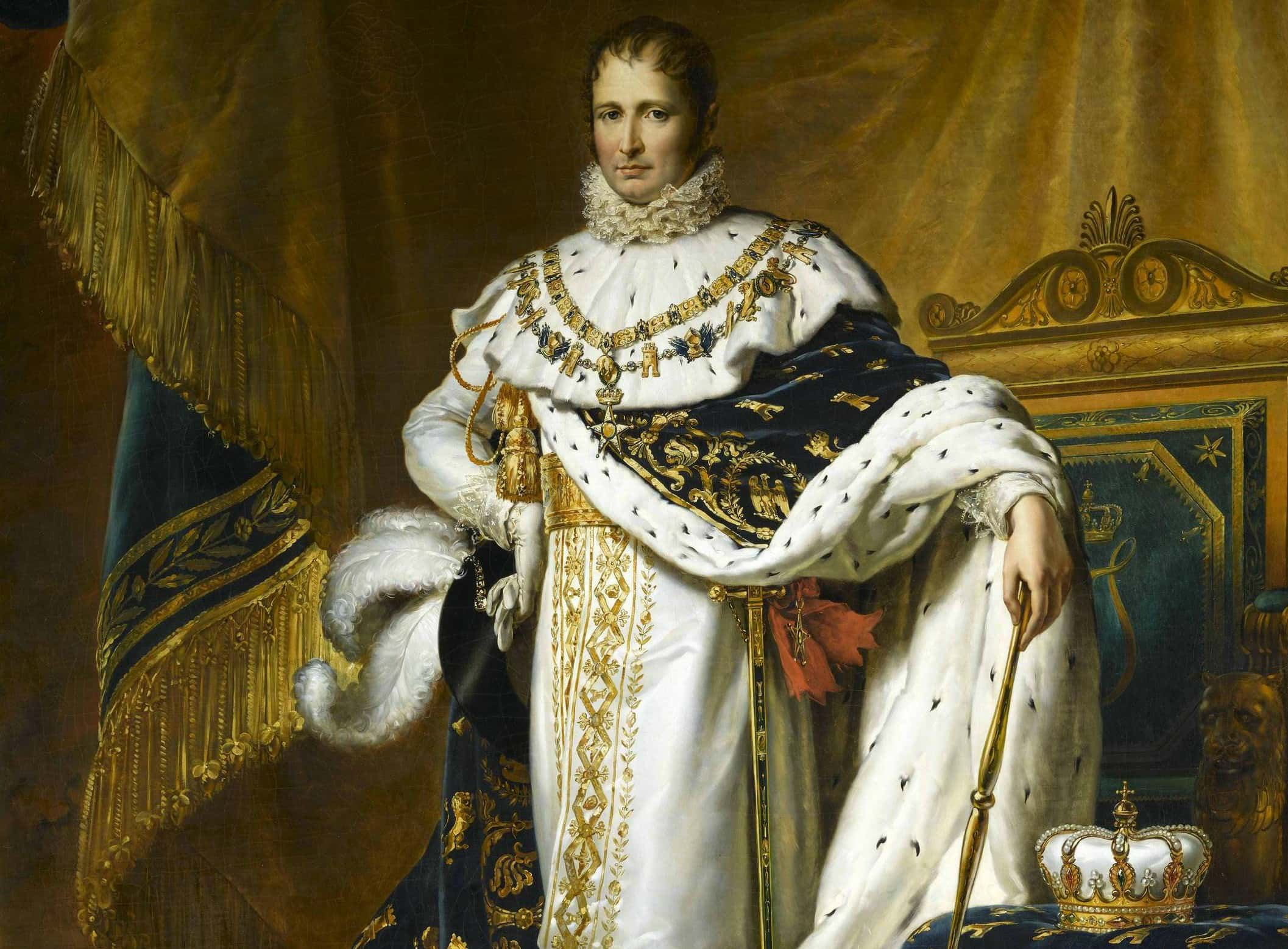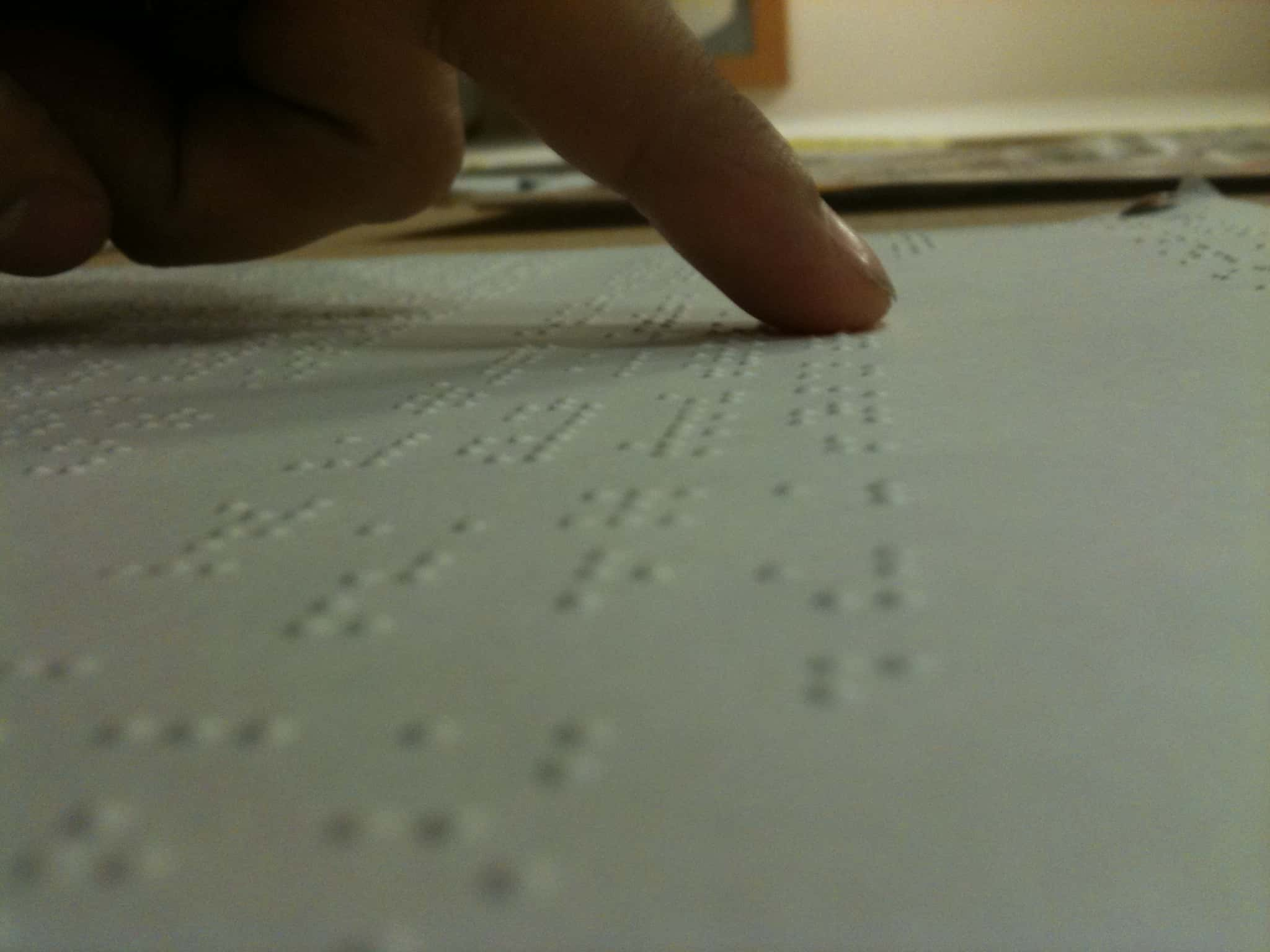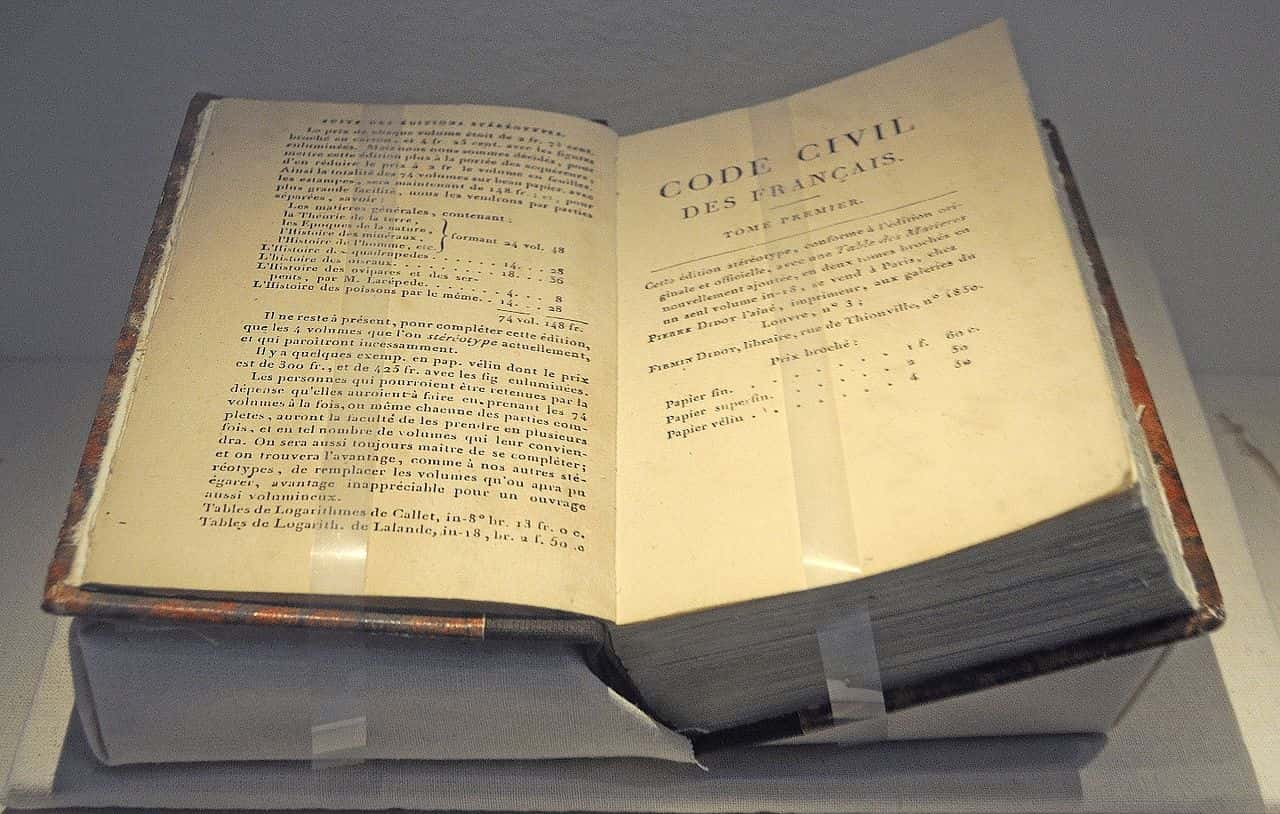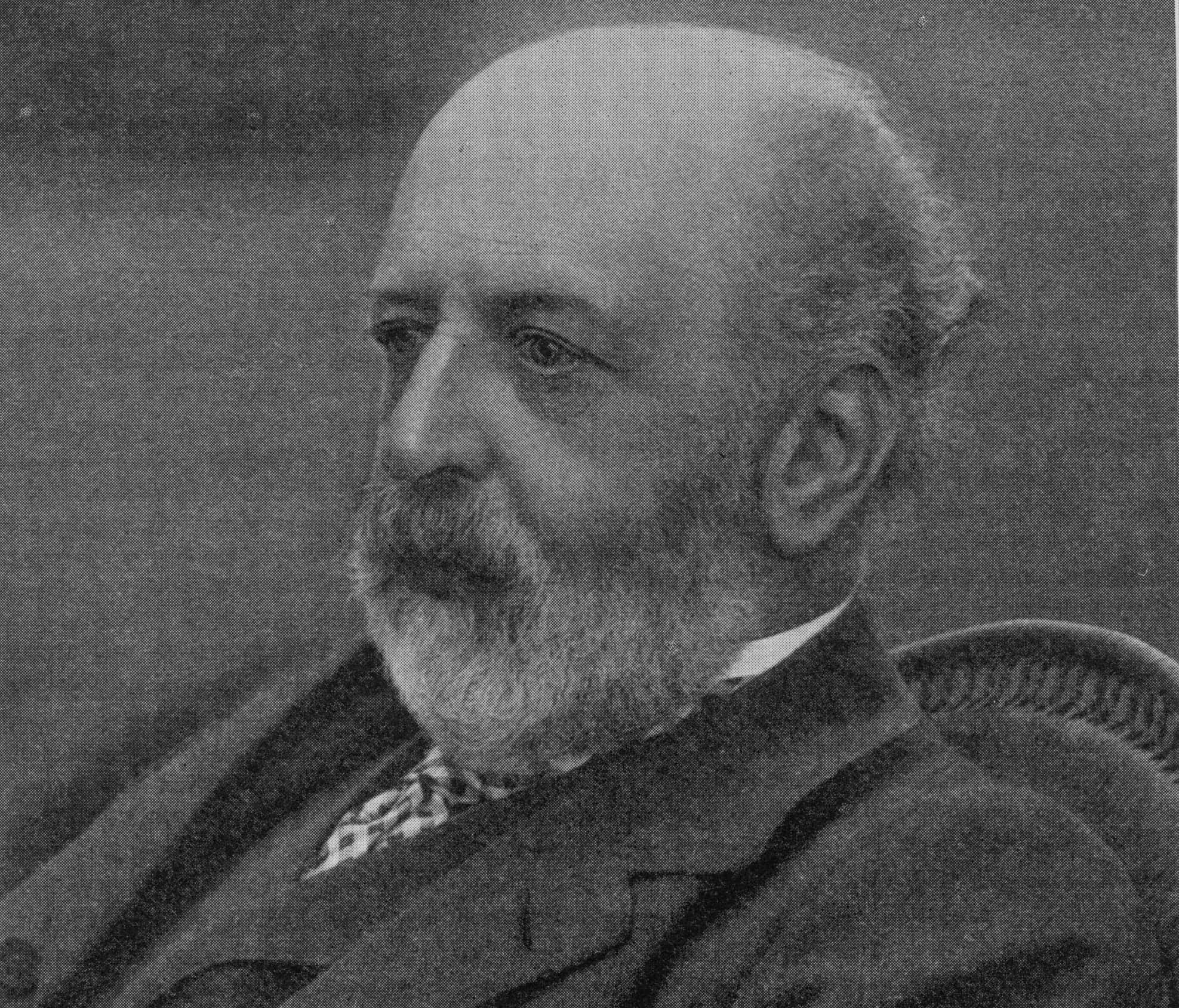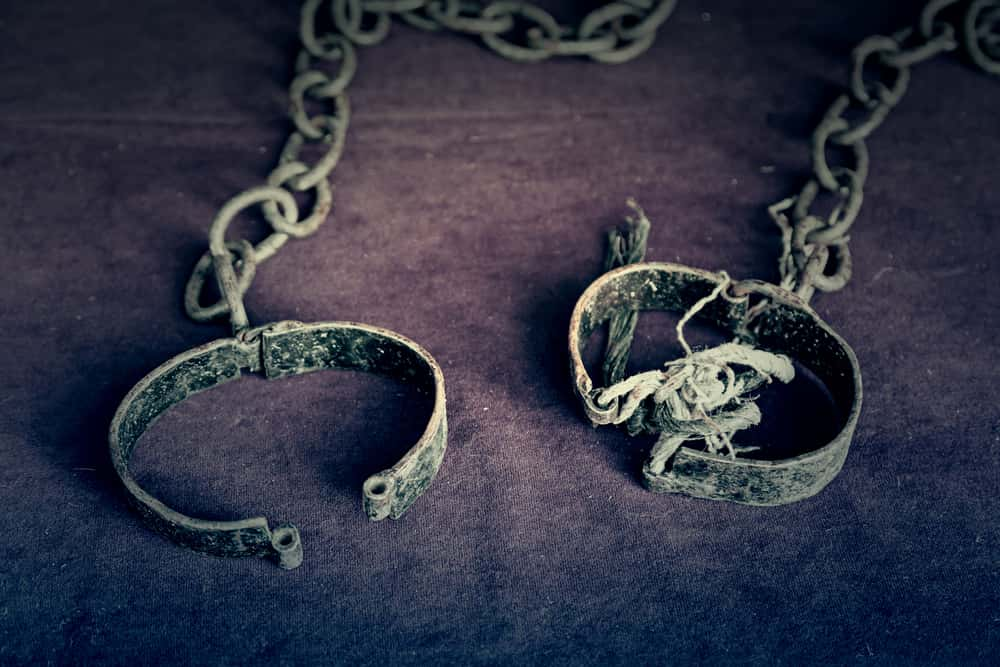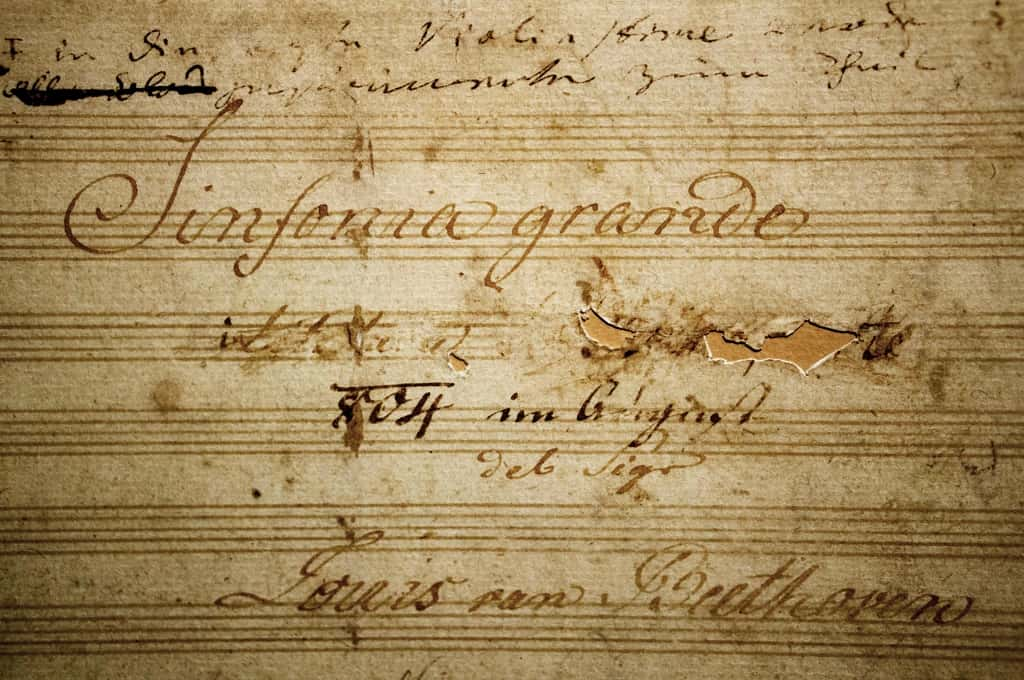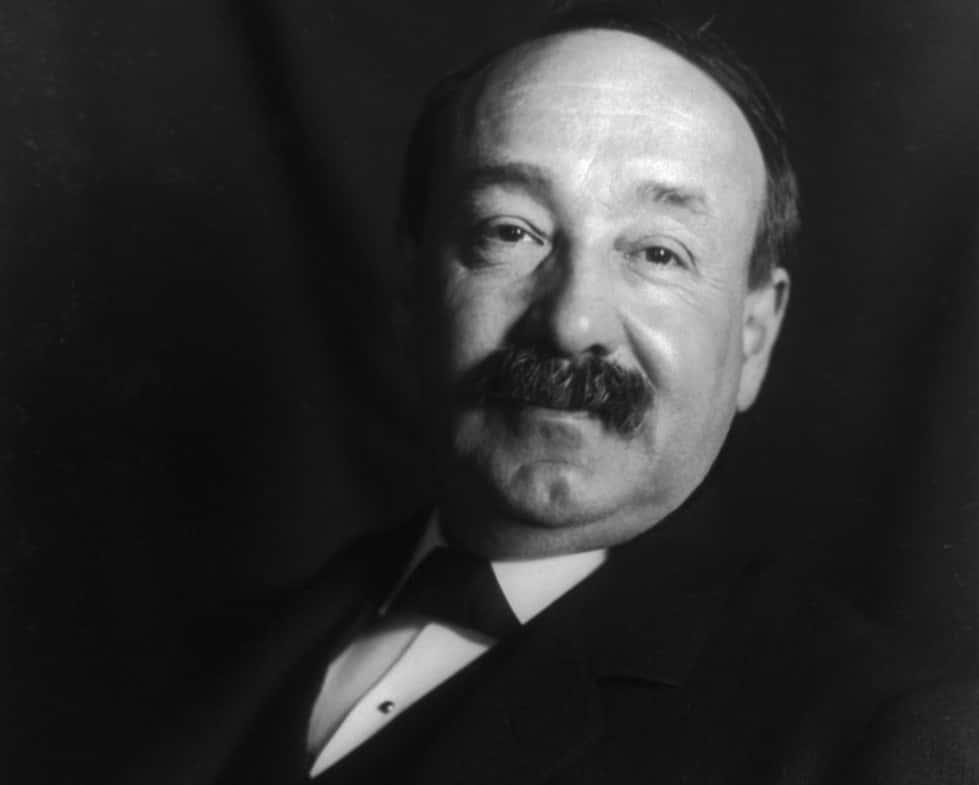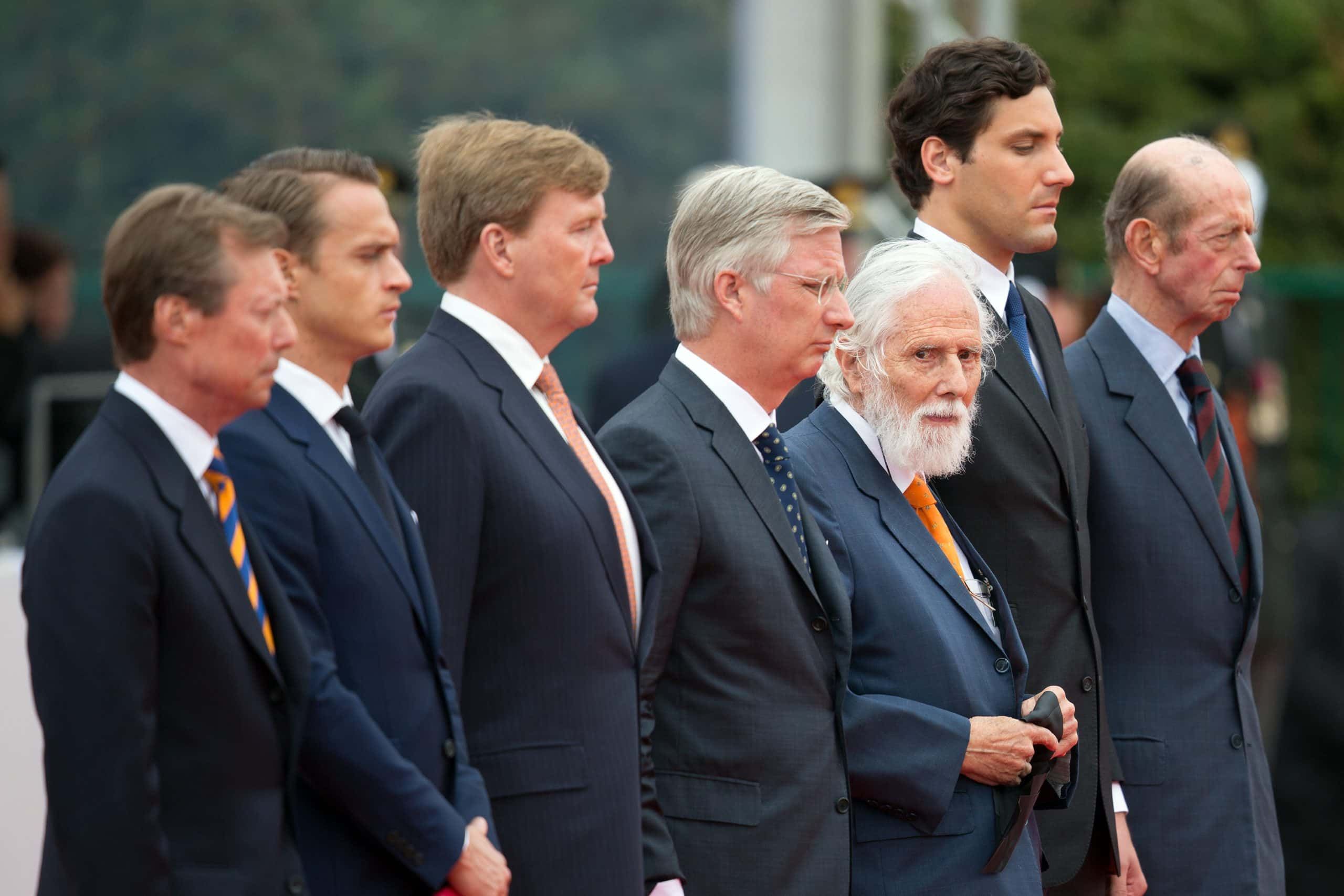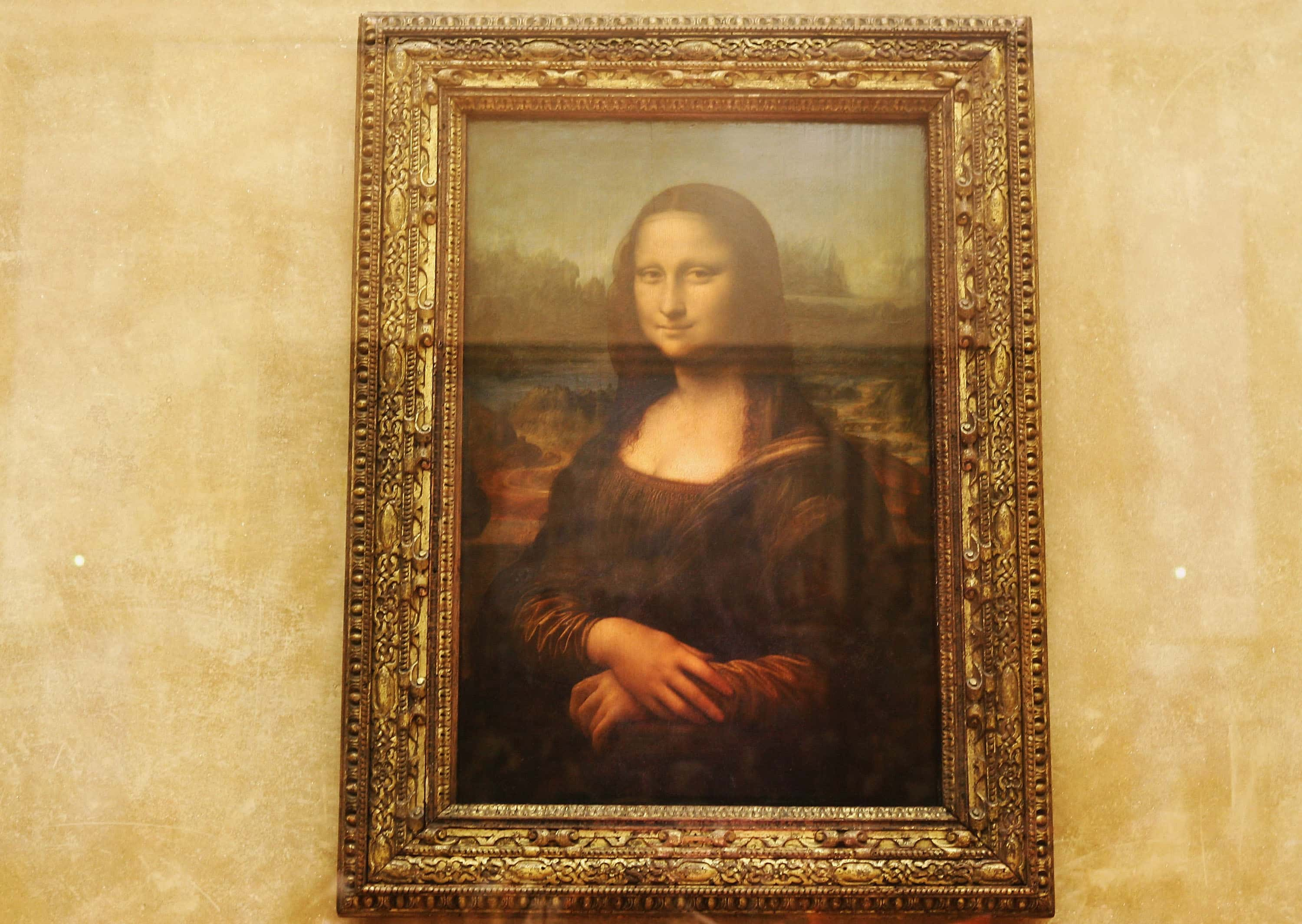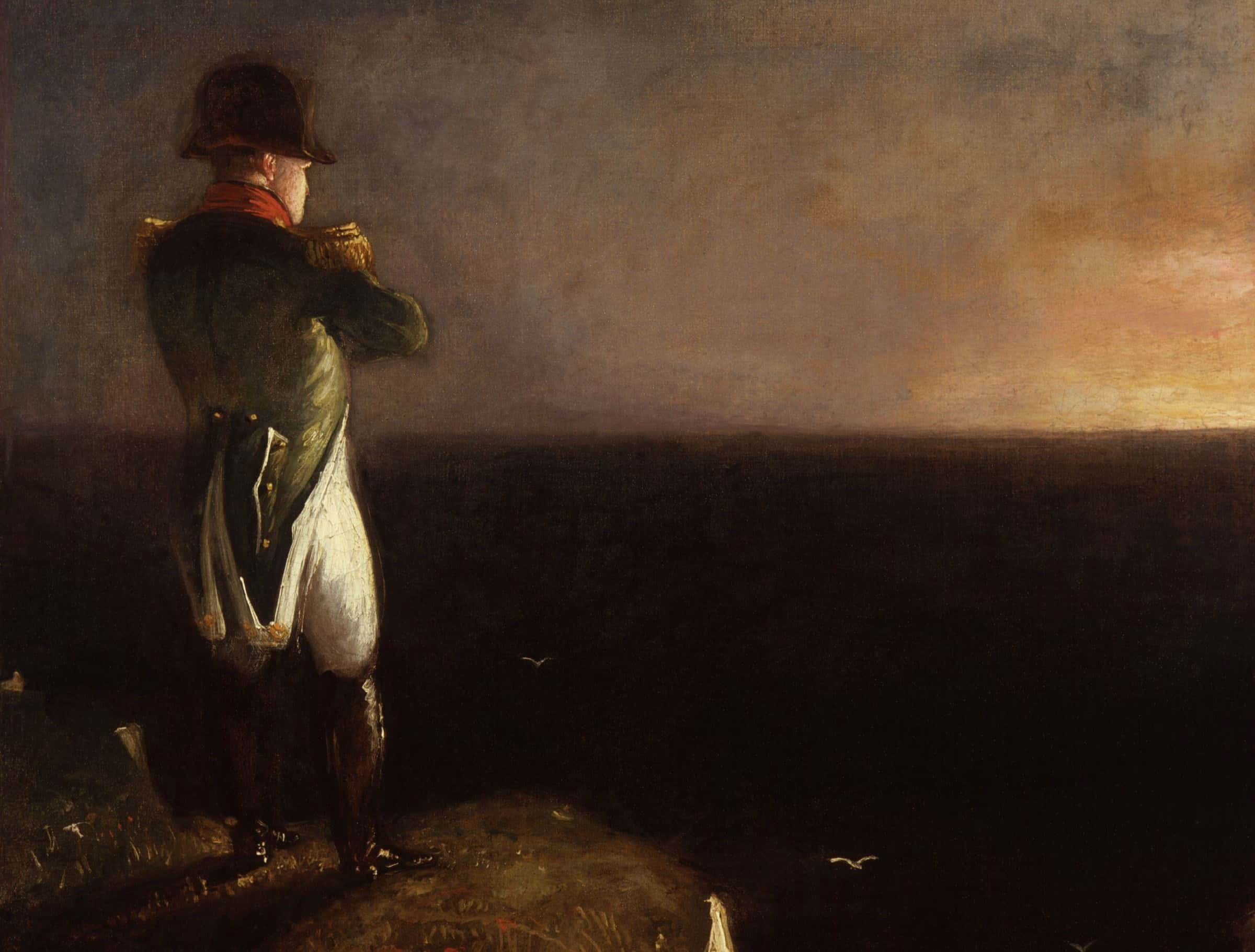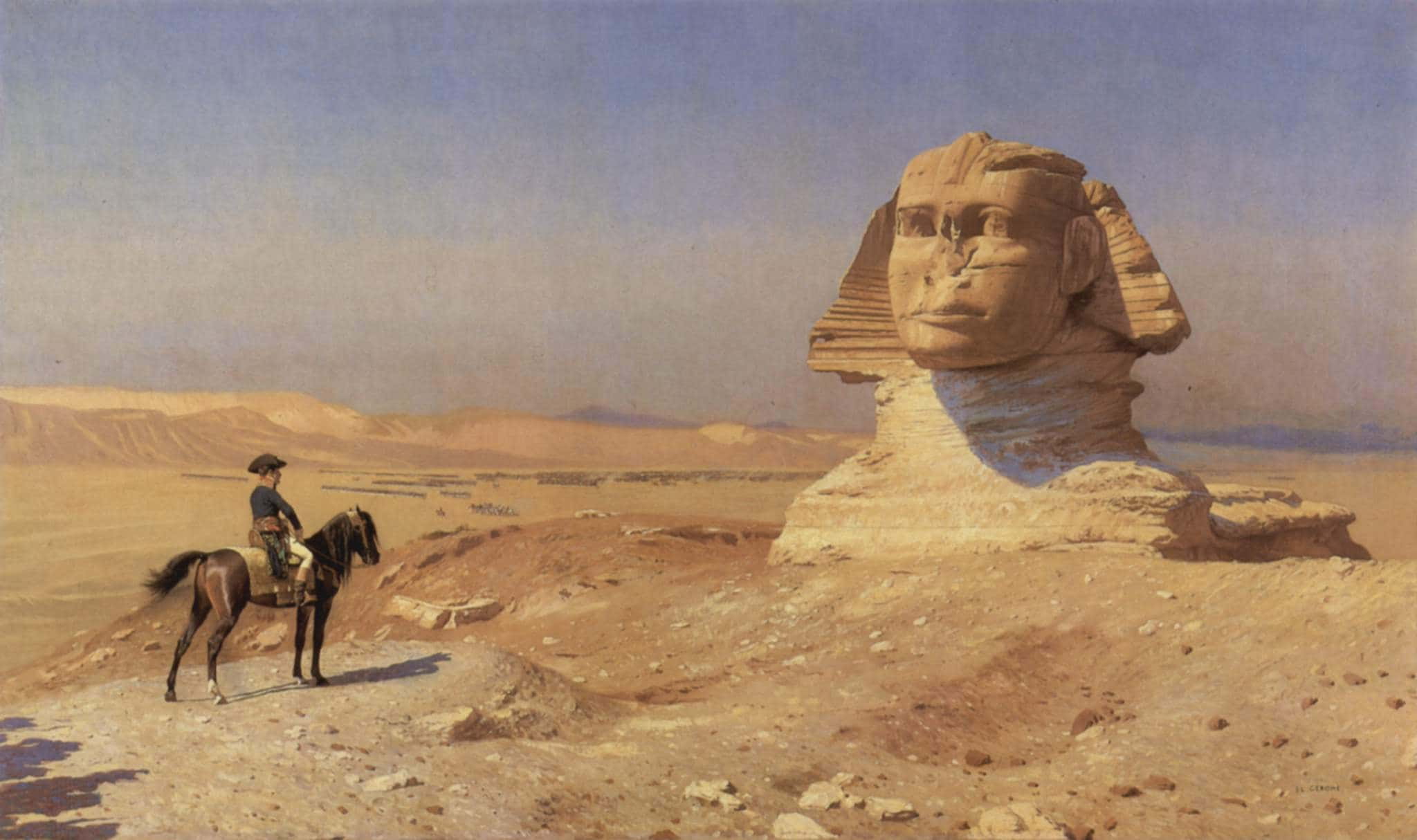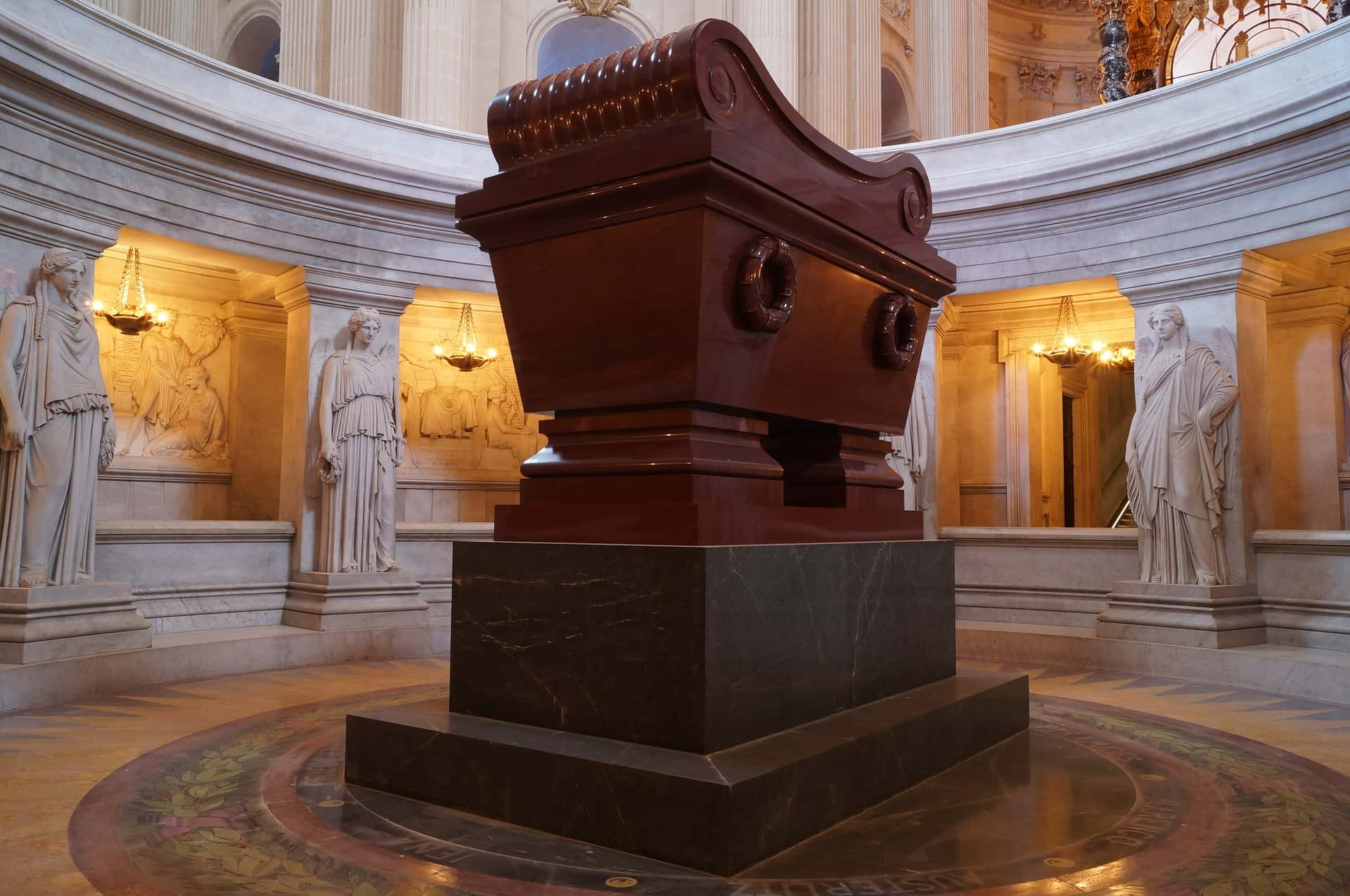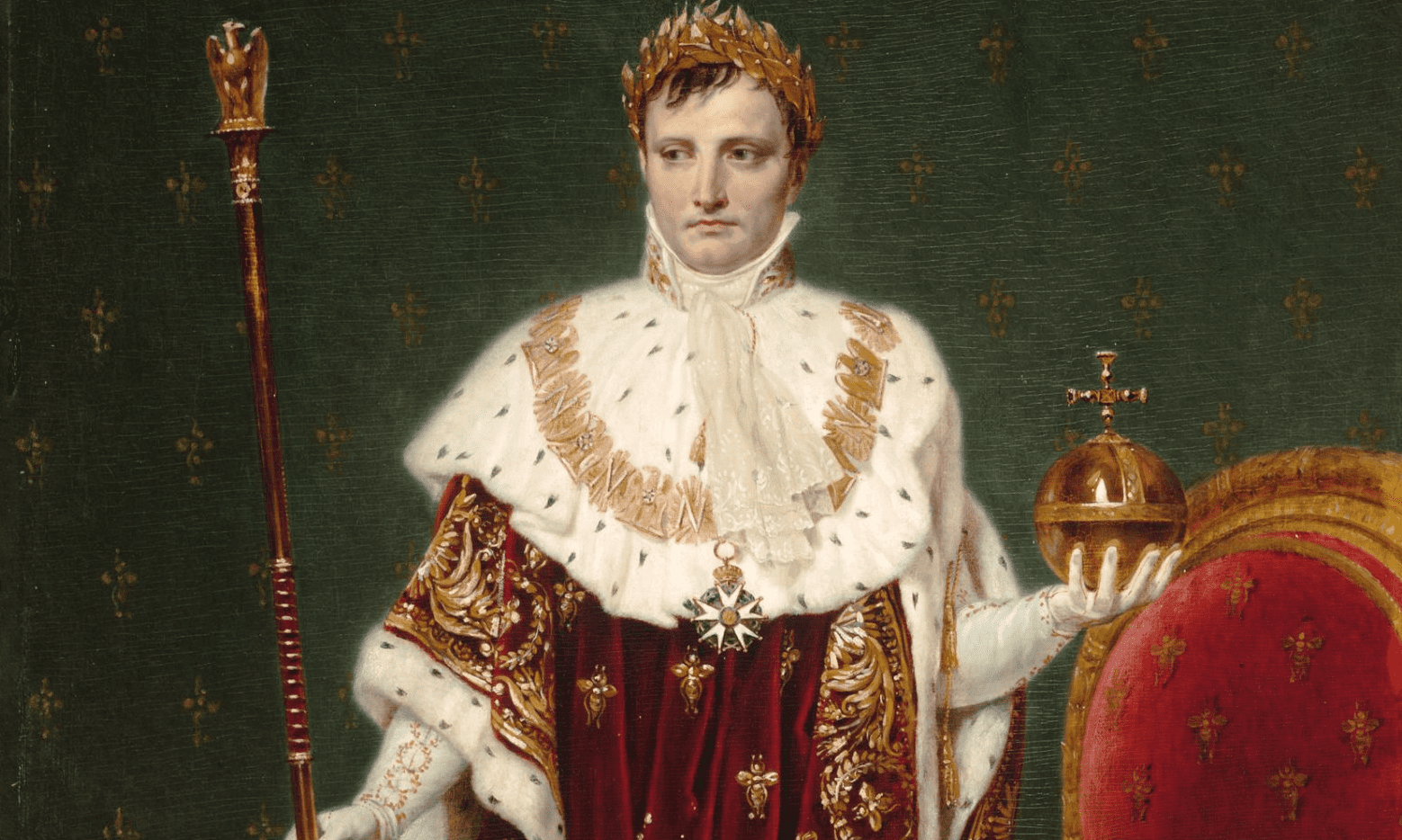Napoleon Bonaparte was born to a modest family in Corsica but rose to become the Emperor of almost all of Europe. As Emperor of France, Napoleon dominated European history for more than a decade, leading the Napoleonic Wars, which reached as far west as Russia and as far south as Egypt. Even though Napoleon was undeniably a tyrant and a dictator, his governmental reign expanded the reach of public education, the rule of law, and civic organization across his empire. Moreover, he encouraged developments such as canned food and braille writing. He voiced opposition against cruel forms of punishment and Anti-Semitism. Numerous captivating and comprehensive books have been authored about the man, his strategic expertise, and his enduring impact. Here are 42 intriguing and larger-than-life facts about Napoleon Bonaparte!
1. Misinformed
Perhaps the best known “fact” about Napoleon Bonaparte was that he was short—but it’s likely not a fact at all. Napoleon was reported to be 5’2” at the end of his life (the average height of a French male at that period), but the yardstick used for measurement was in French units, which were smaller than today's units. It’s likely he was as tall as 5’6” or 5’7”, which would actually make him above average height.

2. Le Petit Caporal
Napoleon was known to surround himself with tall bodyguards, and was affectionately known as le petit caporal (the little corporal). However, this nickname didn’t refer to his height, but was intended to reflect his affection and camaraderie with his subordinates.
3. In Comparison
At his likely height of 5’6”, Napoleon would have been taller than both Lenin and Stalin (both 5’5”), and Nicolas Sarkozy (also 5’5”). He’d be the same height as Winston Churchill and Benito Mussolini (both 5’6”) and only one inch shorter than Vladimir Putin (5’7”).
4. The Original Alcatraz
Between 1801 and 1857, Napoleon built a fort on the Atlantic ocean named Fort Boyard. The 68 by 31 metre fortification rises straight out of the Atlantic ocean, standing 20 metres tall. Its initial intent was for protection, but it subsequently served as a detention facility. Building Boyard was a feat of engineering—the idea was proposed in 1692, but Louis XIV was told, “Your Majesty, it would be easier to seize the moon with your teeth than to attempt such an undertaking in such a place". More recently, the fort served as the filming site for the French game show, Fort Boyard (1990), where contestants engaged in feats of strength and endurance to win cash prizes.
5. Rejected
Napoleon is famous as a dictator who sought to conquer Europe, including Russia. But, as it turns out, Russia could maybe have avoided the conflict: In 1789, a young French serviceman sought to join the Russian armed forces and fleet, but was turned down on both occasions. That young man? You got it: Napoleon Bonaparte.
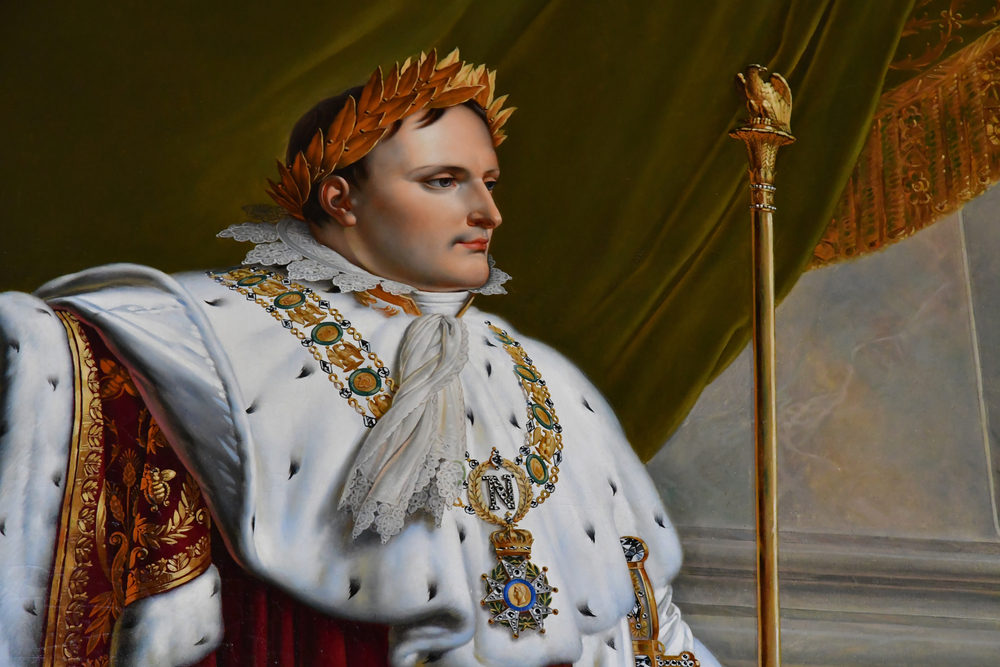
6. Friend of Felines
Another oft-repeated Napoleon “fact” is that he suffered from ailurophobia, a fear of cats. And we’re sorry to report that this one probably isn’t true either. There are tales suggesting that Napoleon, as a child, faced aggression from a bobcat, and that he was found one night, in his nighttime attire, vigorously brandishing a sword at a kitten. However, both accounts remain unverified. In fact, his wife Josephine often kept cats in the home. The misinformation can be partly forgiven, however, as there actually was a Napoleon who was a dreadful ailurophobe—Napoleon III, the Emperor's nephew. Napoleon III could not bear to be around felines and would jump on a chair if one entered the room. Napoleon I was by far the better-known Napoleon, and it’s possible this anecdote is commonly misattributed to him.
7. Combat Proficiency
A frequently mentioned fact highlighting Napoleon's proficiency in strategic combat is his success in more battles than Alexander the Great, Hannibal, and Julius Caesar combined - a claim that remains valid. Naturally, Napoleon engaged in more battles than any of these other warriors, so his numbers would understandably be higher. Kind of like how Brett Favre has the most touchdown passes and the most interceptions.
8. In Another Life
American General George S. Patton, who is known for his leadership in Normandy during WII, staunchly believed in reincarnation. Patton felt he had previously been a warrior leader who lost his life on the battlefield in Napoleon's army or, if not, perhaps a Roman centurion.
9. Allies
The American Revolution would not have been possible without support from France, who funnelled money and arms to American revolutionaries (i.e. the Founding Fathers) in order to support what was then called the Continental Congress against France’s own enemy, the United Kingdom. When George Washington passed in 1799, Napoleon decreed ten days of nationwide mourning in France.
10. Quotable Quotes
Napoleon was renowned for his cleverness and eloquence, in addition to being a man of combat and strategy. Supposedly, when Napoleon was asked by Anne Jean Marie René Savary, a French general and diplomat, whether he wanted to be God, he thought it over and replied, “No, it's a role with no advancement opportunities".
11. Now That’s Payback!
After defeating Napoleon at Waterloo, the Duke of Wellington remained obsessed with his rival. The Duke seduced not one, but two of Napoleon’s former mistresses, one of whom was later quoted as saying she preferred the Duke in bed. The Duke also befriended Pauline Borghese, Napoleon’s sister, for whom he bought a house, and who gave him a saucy painting of herself with her bosom clearly showing, which he hung on his bedroom wall. In addition, Wellington collected several of Napoleon’s swords, paintings of Napoleon, and even hired his cook!
12. Adding Insult To Injury
The Duke of Wellington’s obsession with Napoleon was well-known. In 1816, the year after defeating Napoleon at the Battle of Waterloo, the Duke was presented with a gift from the British government—an eleven foot statue that Napoleon had ordered of himself, personified as the Roman god Mars, only covered by a strategically positioned fig leaf. Wellington placed the statue at the bottom of a staircase in his home in London, where it stands to this day.
13. The Man, The Writer
While in exile, Napoleon published his memoirs and wrote a book about the life of Julius Caesar. But long before he embarked on his career in the armed forces, and prior to meeting and marrying his wife Josephine in 1795, he was also a romance novelist. Napoleon’s novel, titled Clisson et Eugénie, told a fictionalized version of his affair with Bernardine Eugénie Désirée Clary, whose sister married Napoleon’s brother. The book was never published during his lifetime, but it was serialized and sold as souvenirs after his passing. It was translated to English in 2009, and you can purchase it today as e-book on Amazon.
14. Final Return
Napoleon’s stepson, Napoleon II, was the King of Rome, Prince of Parma, and Duke of Reichstadt under his stepfather. When Napoleon I was defeated and forced to abdicate the French throne, he named Napoleon II his successor. However, none of the coalition that defeated Napoleon I accepted this, so Napoleon II was also forced to abdicate. He ended up living out his days in exile in Vienna. In 1940, following Germany's conquest of Austria in WWII, the ashes of Napoleon II were dispatched to France by the German leader as a gift.
15. Bon Mot
In 1807, Napoleon’s army was advancing on Russian territory and Napoleon met with Russian Tsar Alexander I to discuss a peace treaty. After meeting (and after bonding over their mutual dislike of the English), Napoleon was charmed by the Tsar and said he was “especially handsome, like a hero with all the graces of an amiable Parisian". He wrote to his wife Josephine, “If [Alexander] was a woman I'd make him my mistress".
16. Soft Spot
Napoleon's aggressive expansion across Europe resulted in an innumerable loss of European lives, along with widespread disruption. Still, the Emperor could not be described as heartless. According to his own account, he was once moved to tears by finding a soldier's dog crouching on a battlefield, trying to revive its master who had fallen in battle.
17. Useful Invention
During his army’s excursions to far-flung places like Russia and Egypt, Napoleon offered a reward to someone who could make food last longer. In 1809, Nicolas Appert discovered that food cooked inside a sealed glass jar didn’t spoil unless the jar leaked—he’d invented canning! Appert was paid $12,000 francs in reward by the French government. At the time, the reason for the lack of spoilage was unknown—it would be another 50 years before Louis Pasteur explained the role of microbes in food preservation.
18. Foreign Accent
Napoleon achieved impressive feats for a man with humble beginnings. He grew up in French-occupied Corsica, and Corsican and Italian were his first and second languages. While he did learn to speak French fluently, he spoke with a distinct Corsican accent and never learned to spell properly in French.
19. Smart Move
In his bid to win power over Egypt, Napoleon considered converting himself and his army to Islam. He decided not to proceed, confident that French armed service members would not accept a halt to their drinking.
20. He Moved Fast
In 1798, Napoleon captured the island nation of Malta for France while on his way to Egypt. During the six days he spent in Malta, he reformed the national administration, created a public finance administration, abolished feudal privileges, framed a family code of law, nominated twelve judges, established a system of public education (both primary and secondary), and abolished slavery.
21. Rule of the Road
Ever wonder why we drive on the right hand of the road, but the British drive on the left? You have Napoleon to thank! Right hand-traffic was thought to deter fighting while on horseback, as most people are right-handed. Mandatory right-hand traffic was enforced throughout Europe (and all French-dominated territories) after the Napoleonic wars, but since Napoleon never conquered Britain, left-hand driving would remain there.
22. Equal Policy
Under Napoleon’s rule, he emancipated Jews from laws which restricted them to ghettos, and he expanded their rights to property, worship, and careers. In an 1806 Assembly with Jewish notables, he said "I will never accept any proposals that will obligate the Jewish people to leave France, because to me the Jews are the same as any other citizen in our country".
23. Royal Families
In 1810, Napoleon divorced his wife of 14 years, Josephine, so that he might produce an heir with another wife. He never did, and Josephine's son from a previous marriage became Napoleon II. Today, Josephine is the ancestor by blood of five of the current royal houses of Europe. Napoleon is the ancestor of none.
24. Don’t Play Poker With Napoleon
Napoleon was known for prioritizing that which needed to be done, and for his need to win at everything he attempted, any way he could. To that end, he was also known for cheating at cards!
25. No Family Resemblance
Napoleon’s older brother Joseph Bonaparte didn’t share Napoleon’s moxie, though he was named by Napoleon as King of Spain and King of Sicily and Naples. After the Napoleonic Wars, in 1817, he moved to the United States and settled in New Jersey, where he made his living selling the jewelry he had taken with him from Spain. He relocated to Europe towards the end of his life and in 1844, was laid to rest near his brother.
26. Aiding Communication
Many of Napoleon’s policies and inventions remain highly influential today. While in power, Napoleon demanded a method of communication that would not require light or sound. "Night Writing" was developed by Charles Barbier as a tactile strategy for the armed services, but Napoleon's personnel found it too challenging to learn, thus it was discarded. In 1821, Barbier met someone who was interested in his tactile code—during a visit to the Royal Institute for the Blind, he met Louis Braille. Together, the two adapted his idea and created braille writing, the same that is still used today.
27. Another Quip
When the Duke of Wellington attended a party in Vienna, some French officers turned away from him, the conqueror of their Emperor Napoleon. When a woman apologized for their rudeness, Wellington replied: “I have seen their backs before, madam".
28. What’s In A Word?
In 1977, Napoleon indirectly became a source of controversy. The New York Times Sunday Review published an excerpt of the book Words & Wisdom by William and Mary Morris, a book on etymology and the history of well-known words and phrases. In the excerpt, they traced the origin of the word pumpernickel back to a quip Napoleon once made: upon being given the dark, hearty bread, he criticized it as “pain for Nicole!”—that is, it was bread fit only for Nicole, who was his horse. Unfortunately for the New York Times, the story was completely made up. The newspaper was deluged with letters, and William and Mary Morris were outed as charlatans.
29. Judicial Dilemma
In North America, only two regions utilize systems of justice grounded in the French law formulated by Napoleon. In Louisiana, law students choose to study either American law or Louisiana Civil Code. Similarly, the governance of the Canadian province of Quebec falls under both the Canadian Penal Code and the Quebec Civil Code. Both latter systems are based on the French Civil Code established by Napoleon in 1804.
30. Opportunity Knocks
By the end of the Napoleonic Wars, the Rothschild family had established such an efficient system of couriers in Europe that they knew Napoleon had lost at Waterloo a day before the government did. Nathan Rothschild did the noble thing and immediately reported it to the government, but after the news was made public, he bought up the government bond market. He then sold the bonds for an enormous 40% profit two years later, and established his family’s lasting fortune.
31. Realized This Centuries Ago
Napoleon Bonaparte believed that the practice of inflicting severe pain should be ended because the information derived from it is useless. He wrote to Louis Alexandre Berthier in 1816: “The barbarous custom of having men beaten who are suspected of having important secrets to reveal must be abolished. It has always been acknowledged that this method of questioning men, by subjecting them to extreme duress, yields nothing of value. The poor wretches say anything that comes into their mind and what they think the interrogator wishes to know".
32. De-Tribute
Beethoven’s 3rd Symphony was originally named “Bonaparte” and was dedicated to Napoleon, then a French general. But in 1804, when Beethoven learned that Napoleon crowned himself “Emperor”—a title which Beethoven associated with tyrany—the composer was so furious that he scratched the name off the title page with such vehemence that it tore a hole in the paper.
33. Political Family
Charles Joseph Bonaparte, great-nephew to Napoleon, became an American lawyer and politician, and activist for progressive and liberal social causes. He served in the cabinet of President Theodore Roosevelt, and later served as Secretary of the Navy and later Attorney General. As Attorney General, he oversaw the creation of the FBI in 1920.
34. Napoleon Bunny-Part
Napoleon managed to conquer a large part of Europe for the French Empire, but he didn’t have any control over the rabbit kingdom. In 1807, after signing the Peace Treaty of Tilsit, he staged a rabbit hunt with the help of his friend, Marshal Alexandre Berthier, to entertain and impress the Russians. Berthier acquired domesticated rabbits, thinking that would ensure an easy hunt. However, when the friendly rabbits were released, they mistook Napoleon for their caretaker bringing them food. Napoleon was swarmed by hundreds of rabbits, and fled in his carriage, flinging bunnies out the window as he went.
35. Heir Apparent
The imperial House of Bonaparte has continued to keep track of Napoleon’s bloodline, just in case France ever restores power to the hands of the dynasty. While astronomically unlikely, the Emperor would be Jean-Christophe, Prince Napoleon, born in 1986. He completed his MBA at Harvard in 2017 and is presently working as an investment banker in London.
36. Curious Defeat
Over his tenure in combat, Napoleon suffered many losses, but one of his most amusing defeats was at a game of chess played with "The Turk," an automatic chess-playing machine. In 1809, Napoleon played three games against The Turk, and lost all of them. Contradictory stories declare that Napoleon was either delighted or infuriated by losing to a “machine,” but one fact that is for sure: The Turk was a hoax! A human chess master was hidden inside the machinery of the “automaton,” directing all the moves.

37. Place of Honor
Being the ruler of Europe comes with certain perks, including some fancy decorations for your home. While Napoleon was in power, the Mona Lisa was hung in his bedroom.
38. Go Ahead, Shoot Your Emperor
Napoleon was in complete exile when he encountered his adversaries, yet with merely six words, he persuaded them to join his side in combat.
Even after his defeat, abdication, and exile, would-be emperor Napoleon never gave up his goal of gaining control of France and eventually all of Europe. Exiled to Elba after his defeat at Leipzig, Napoleon escaped the island and landed on the French mainland. There he encountered a group that had been dispatched to stop him from reaching Paris. Napoleon glanced at the assembled personnel and proclaimed, "Here I am." Kill your Emperor, if you wish". Impressed with his audacity, the personnel joined Napoleon on his march to Paris and helped him reclaim the throne of France.
39. Unlocking a Mystery
Napoleon saw himself as more than just a commander, but also as a cultured individual and a devotee of science. During his campaign to conquer Egypt (also aimed at interrupting British supply lines), he was accompanied by 150 scientists, engineers, and scholars to examine the topography, environment, culture, and history of Egypt. They published a 23-volume study of Egypt, titled Description de l’Égypte, which contained important and yet unknown knowledge of Egypt and its history. They also discovered the Rosetta Stone, a stone slab inscribed with a passage in Egyptian hieroglyphics, demotic, and Greek. This translated inscription became the key to decoding hieroglyphics, which until then had been completely mystifying.
40. Arsenic and Old Conspiracy Theories
When Napoleon passed, the formal conclusion was stomach cancer. However, due to the peculiarly well-maintained state of his body post-expiration, there were murmurs suggesting arsenic contamination; the preservation of remains is a symptom related to this fatal substance. In 1961, researchers did indeed find a high level of arsenic in his hair, but an even more detailed 2008 study found that while Napoleon had insanely high levels of arsenic in his tresses, these levels didn't increase throughout his life. Most likely, Napoleon (along with wife Josephine) had just been exposed to lead-based paints and other products that were popular at the time, and this wasn't what caused his demise.
41. Dis-Membered
After Napoleon's passing, his physician notably separated his private part and handed it over to a cleric in Corsica, and it was subsequently kept, though not adequately preserved. Over time, the body part has deteriorated, and has been compared to “a piece of leather, a shriveled eel and to beef jerky,” and, when it was displayed at a museum in New York, was called “maltreated strip of buckskin shoelace” by TIME Magazine.
42. Undignified Resting Place
In 1977, a urologist from New Jersey purchased Napoleon's intimate male part at an auction. He kept the item, which he purchased for $3000, concealed under his bed for the next 30 years. His daughter inherited the body part, and has been offered $100,000 for it, though as of 2015 is still in possession of the unusual souvenir.
Sources: 1, 2, 3, 4, 5, 6, 7, 8, 9, 10, 11, 12, 13, 14, 15, 16, 17, 18, 19, 20, 21, 22, 23, 24, 25, 26, 27, 28, 29, 30, 31, 32, 33, 34, 35, 36, 37

